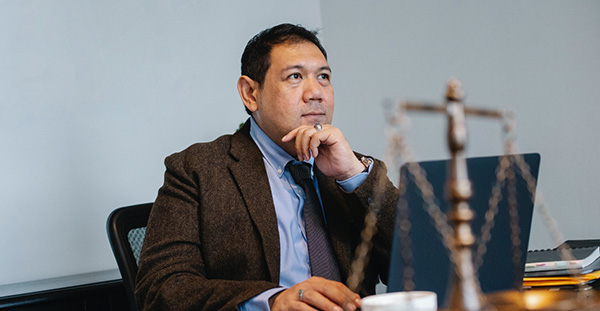What are the key elements that you can find in a franchise agreement?
Franchise agreements are made up of a long list of provisions that you, the franchisee, must agree to before you can start running a franchise business. Expect to see all of these, no matter which franchising code you review.
Trademarks and their usage
When you buy a franchise, you take on that brand’s trademarks as an official extension of the brand. This includes logo, slogan and brand colours.
This also has to do with which specific brand trademarks can be used and how to use them. Franchise agreements can differ in this regard, with separate franchisors offering few or many brand trademarks and unique restrictions.
Franchise location and territory rights
These provisions lay out the precise location of your franchise and what options you have as a franchisee. One franchising code may offer different customisation opportunities than another.

Advertising standards
Because you represent the brand, you’ll be expected to follow certain guidelines when advertising. Here, the franchisor will explain all of its standard advertising procedures. This also typically includes key performance indicators (KPIs) and any other marketing plan.
Product and service restrictions
There may be limitations on how much you can customise your franchise’s products or services. However, franchisors are often open to new ideas and may welcome any especially useful innovations you might have.
What happens at the end of the agreement
The franchise agreement only lasts for a set amount of time — typically between 5 to 10 years — before agreement renewals, terminations or transfers happen. This part explains what franchise rights you have as a franchisee when the terms expire. For example, many franchise agreements expect you to renew the contract; failure to do so could be a breach of the terms and might lead to your termination.

Terms of the franchise
Liability limits, ownership and severability are all core components of a franchising code. Sometimes these terms are publicly available — other times, you may need to ask about them. These provisions are usually negotiable.
Obligations and duties
You will typically be held accountable for both an ongoing and initial franchise fee that you pay the franchise in exchange for the right to use their intellectual property. Additionally, you may be expected to use a portion of your sales cash to pay for other aspects of the franchise arrangement, such as national advertising.
The restraint of trade clause
This common commercial law doctrine lays out what you are legally restricted from doing after your relationship with the franchise ends, such as competing with the franchise or sharing trade secrets.
Find out more: Still not sure which franchise you should invest in? Learn how to choose the right franchise.
Important things to keep in mind when signing a franchise agreement
Here, we’ll go over a few important things to keep in mind before walking into a negotiation. If you don’t see your question answered here, check out our comprehensive FAQ.
What are the different types of franchise agreements?
There are four primary types of franchise agreements, which determine what the franchise relationship will be:
- Basic franchise agreements (also called single-unit agreements; if you’re new to franchising, this is most likely the type you’ll see).
- Master franchise agreements.
- Area developer agreements (sometimes referred to as multi-unit agreements).
- Area representative agreements (master agent agreements).

How is intellectual property handled?
Intellectual property can include a long list of brand assets bestowed upon you as part of a franchising agreement. The use of the pre-established intellectual property is at the heart of any franchising relationship. When you become a franchisee, you are starting a business relationship with the franchisor in exchange for this.
What is a franchise disclosure document?
This is separate from the franchise agreement, but it will come with the deal. This provides the franchisor with a contractual obligation to give certain facts about the franchise to the franchisor while also requiring the franchisee to give information to the franchisor.
The point of a disclosure document is to provide the franchisee with all the information they need so they can make an educated, informed decision when deciding to partner with the franchise, as well as keep the franchisor informed to update a future disclosure document.
Do you need to hire a franchise lawyer for a franchising agreement?
As the name implies, a franchise lawyer specialises in franchise law. This can make them invaluable when negotiating a franchise agreement’s terms.

These professionals can help you:
- Write up a franchise agreement.
- Negotiate the terms of the contract.
- Resolve a franchise dispute.
- Understand trademarks and the licence agreement.
- Make better-informed decisions using professional legal advice.
In short, they can help you with the entire process of buying and running a franchise in addition to helping with the franchise agreement. Hiring a franchise lawyer is highly recommended before agreeing to any terms.
Find out more: Need help pitching yourself to a franchisor? Learn how to stand out from other franchisees.
Negotiating a franchising agreement begins with understanding its parts
While there’s a lot to understand about franchising agreements, this guide should give you a head start when you’re ready to start negotiating the terms of a contract. With this, you’ll be far better equipped to obtain favourable provisions from a franchise agreement than if you come unprepared.
Looking to buy your own franchise? We have a franchise database plus a litany of valuable resources to help you every step of the way. Take a look at our listings and discover which franchise opportunity is best for you.
